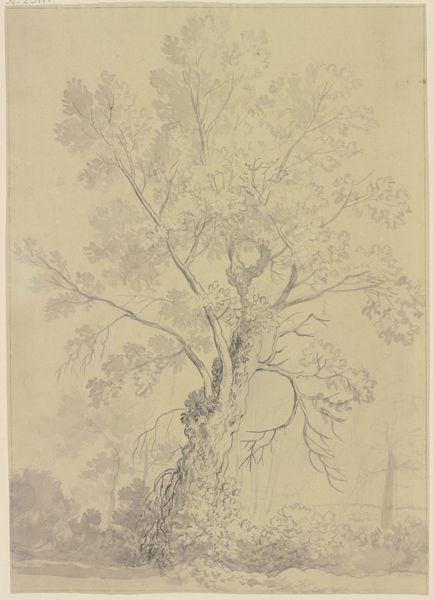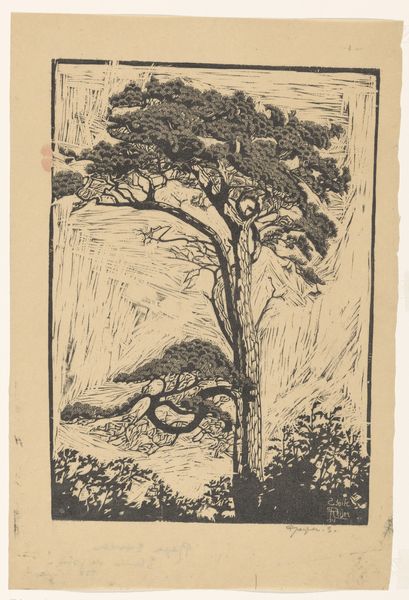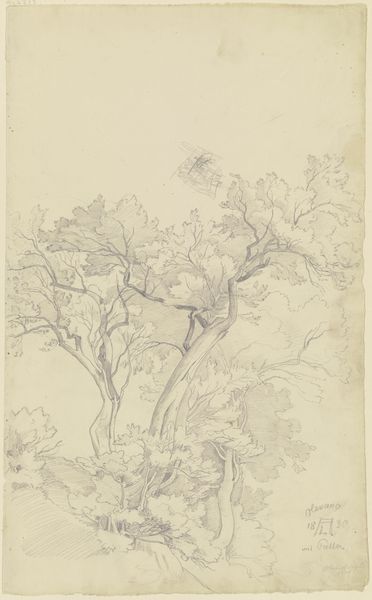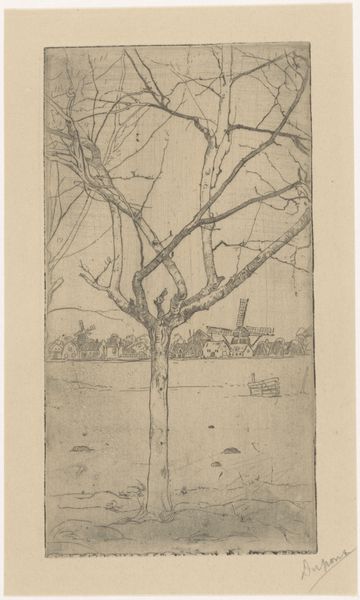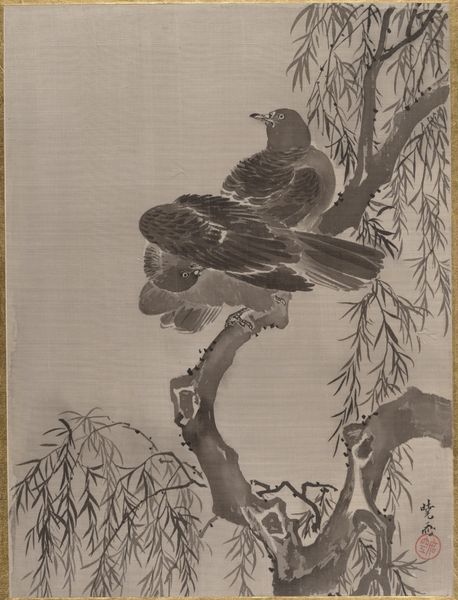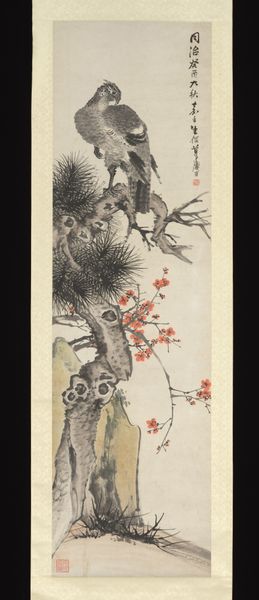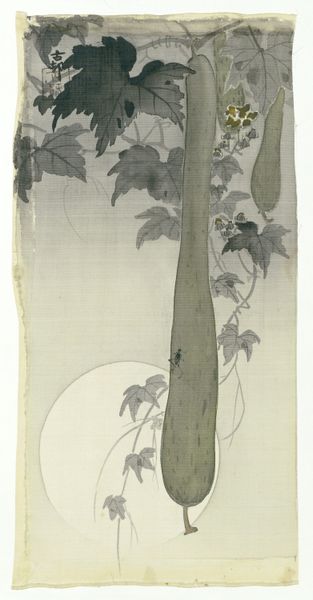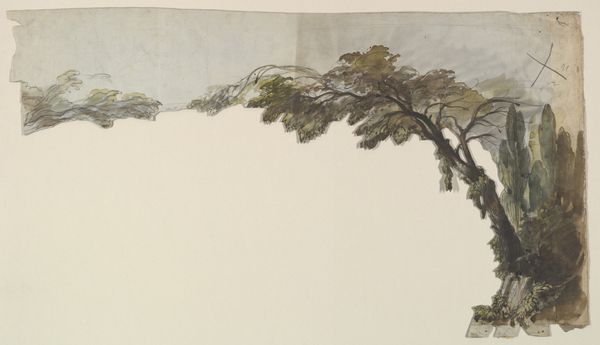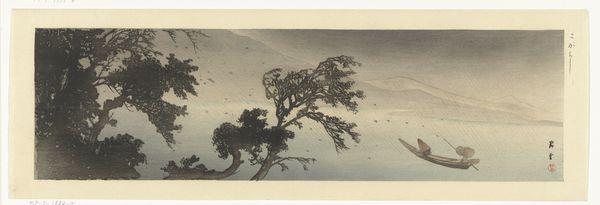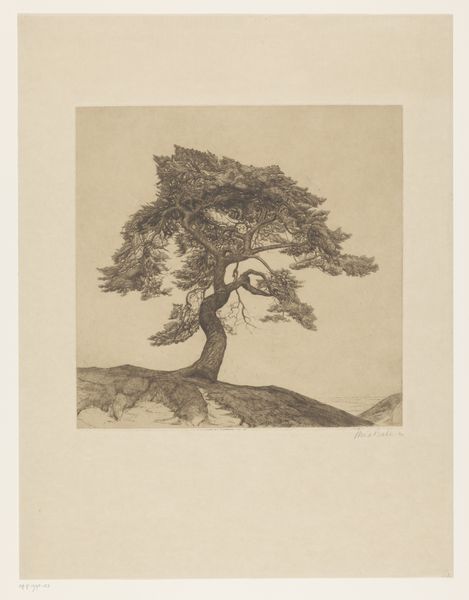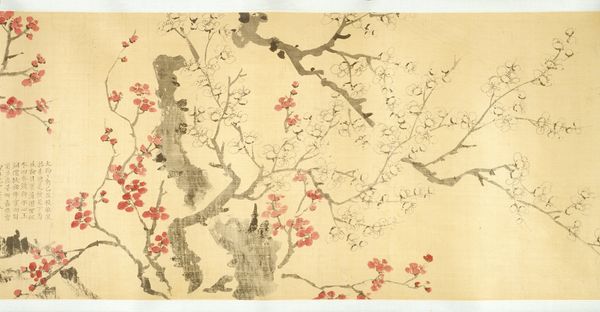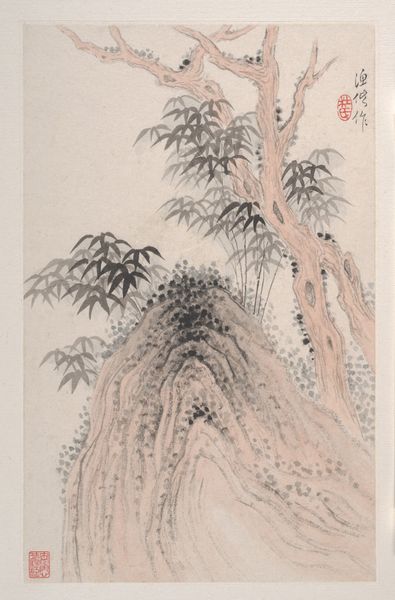
print, woodblock-print, woodcut
#
blue ink drawing
# print
#
landscape
#
etching
#
figuration
#
linocut print
#
woodblock-print
#
botanical drawing
#
woodcut
#
japonisme
#
watercolour illustration
Dimensions: height 333 mm, width 236 mm
Copyright: Rijks Museum: Open Domain
Editor: Here we have Emil Orlik's "Boom in de wind" or "Tree in the Wind," a woodcut from 1901. It really captures a sense of movement, almost like the whole scene is being swept away by a gust. What do you make of it? Curator: It's quite compelling how Orlik manipulates line to convey this sense of dynamism. Observe how the branches aren't just bent, they’re almost vibrating with energy. Notice how the application of layered colour creates an evocative picture plane. Do you perceive any specific contrasts within the composition itself? Editor: I do. The starkness of the tree against the softer, almost faded background. It's not a restful image, but it does have a strange harmony. What artistic decisions do you think helped create this effect? Curator: Primarily, the technique itself. The woodcut medium, with its inherent texture and capacity for bold lines, lends itself well to this expressive style. Note also the strategic use of negative space; the areas left blank contribute significantly to the overall feeling of lightness and air, allowing the tree to exist as pure form. This contrasts, creating rhythm and, if you will, an emotional composition. Editor: So the form itself is really driving the emotional impact. That's a very cool method. It's made me think about other pieces that are driven primarily by composition to create feeling. Curator: Precisely. Reflecting on the elemental language of the artwork, the material itself communicates volumes and influences how we perceive and engage with a piece.
Comments
No comments
Be the first to comment and join the conversation on the ultimate creative platform.
